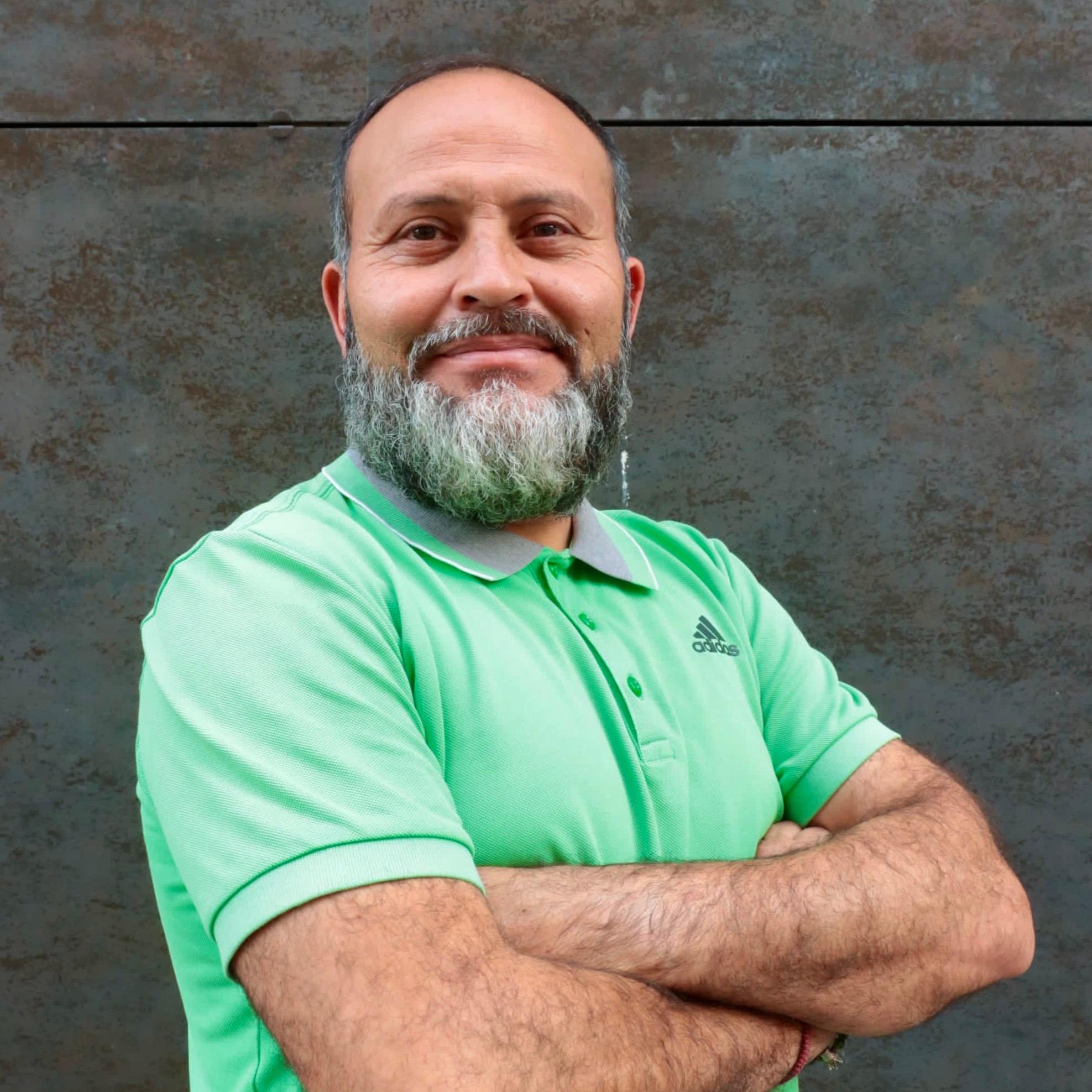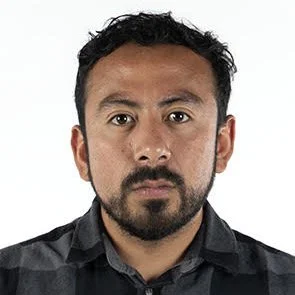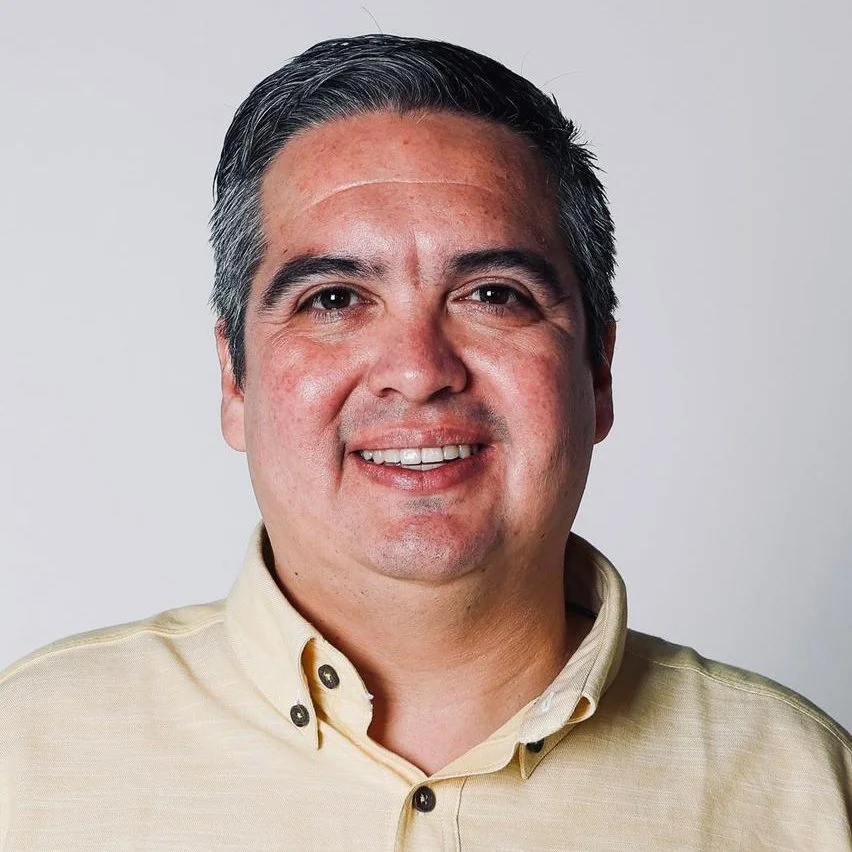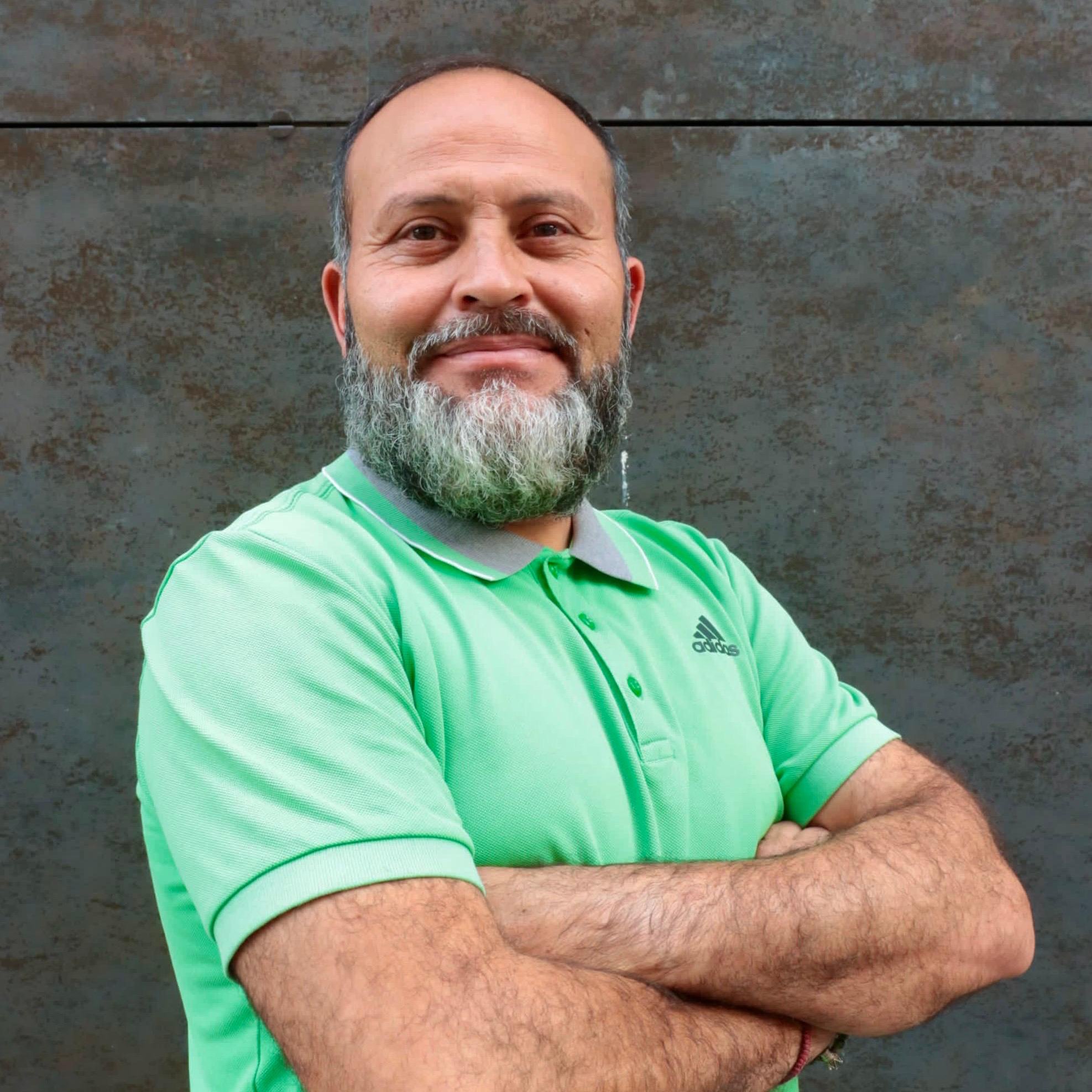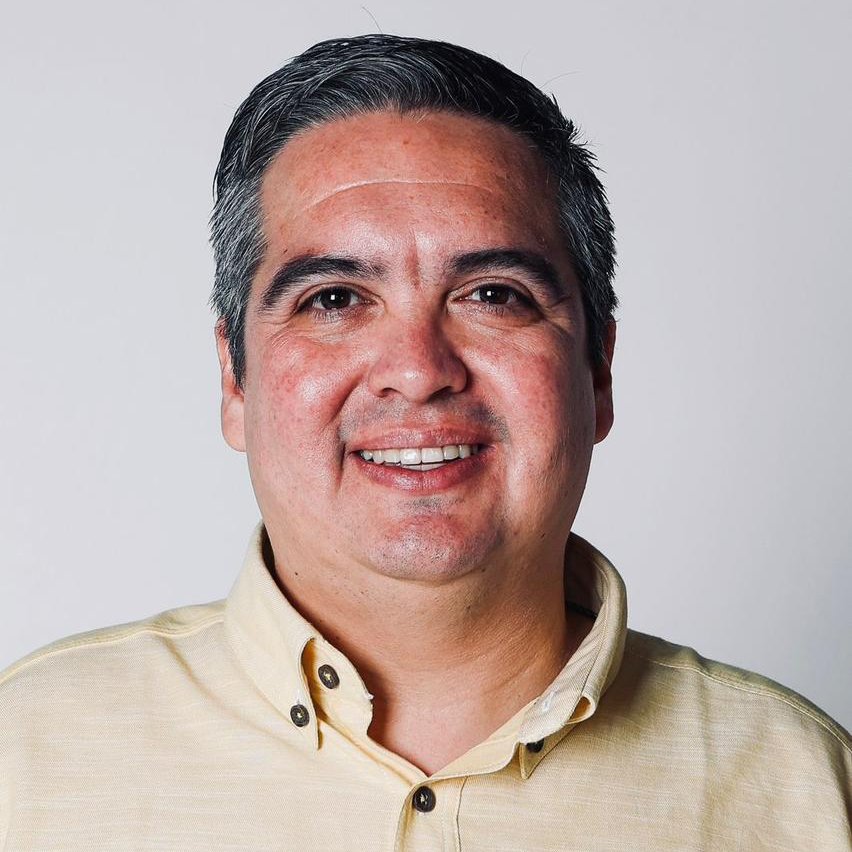Indigenous Critics Say Deception, Fraud Stain Mexico’s “Panama Canal”
The rehabilitation of Line Z railway was the anchor project of the Interoceanic Corridor. Other interventions that the government did not consult with indigenous peoples were soon revealed. Photos by Valente Rosas/El Universal
With insufficient information and little notice, the indigenous consultations supported by the Mexican government were the first violation of the peoples' rights of the Isthmus. The falsification of signatures followed, along with the votes of deceased people.
Editor’s note: This investigation was originally published by El Universal and co-published in English by palabra.
Under the promise of “development” for Oaxaca and Veracruz, the Mexican government will transform an area rich in natural resources into an industrial landscape with The Interoceanic Corridor of the Isthmus of Tehuantepec. Despite government claims, indigenous people have been excluded from the project that is changing their territory and culture, driving land dispossession and increasing violence.
Haz clic aquí para leer este reportaje en español.
The interoceanic passenger train started operations in December 2023. However, the track rehabilitation aims to transport goods from the Pacific Ocean to the Atlantic. Video by Diego Prado/El Universal
The San Blas Atempa industrial park will be developed in El Pitayal, an important natural area for the Zapotec community of Puente Madera. Video by Diego Prado/El Universal
When the community of Puente Madera, in the municipality of San Blas Atempa in Oaxaca, learned that the Mexican government wanted to install Development Sites (PODEBI in Spanish) on their lands, Inocencio Morales was already dead.
He died on the night of January 22, 2020. Liver cancer took his life at the age of 62, according to the doctor's death certificate. But more than a year after his death, his signature appeared in the minutes of the agrarian assembly of March 14, 2021, endorsing the sale of land to the government and the installation of this industrial park of the Inter-Oceanic Corridor of the Isthmus of Tehuantepec. The corridor is a priority project of the six-year term of Andrés Manuel López Obrador. It is the Mexican alternative to the Panama Canal.
The death certificate of Inocencio Morales shows he died on January 22, 2020, one year before the Assembly to approve the Podebi took place. Images by El Universal
This is only one of the anomalies found in those minutes. The document shows inflated participation, signatures repeated up to three times and dozens of falsified signatures, prompting the community to file for injunctions that ended up temporarily halting the progress of one of the 10 industrial parks contemplated in the megaproject.
The assembly was convened by the then municipal president, currently Senator of the Republic for Morena Antonino Morales Toledo. The event also had the backing of Notary Public 37, Jorge Antonio López Mier, and the head of residence of the Agrarian Attorney General's Office, Luis Alberto Jiménez Paredes.
It was the highest point of a series of arbitrary actions affecting this Zapotec indigenous community following the first consultation on the Interoceanic Corridor in 2019. That consultation was not carried out under Convention 169 of the International Labor Organization (ILO) on indigenous and tribal peoples in independent countries and the United Nations Declaration on the Rights of Indigenous Peoples.
Because of this, some Zapotec community members’ attempts to defend their territory have clashed with government claims to have a “commitment to work for the benefit of the Indigenous communities,” as established in the minutes of the assemblies convened around the Corridor.
Neither free nor informed
Indigenous communities, assemblies are fundamental decision-making exercises. They are not one-day events; discussions and deliberations can take months. Photo by Valente Rosas/El Universal
The PODEBI projects are geographic areas, located mainly on cooperatively owned land in Oaxaca and Veracruz, where communal residents or farmers known as ejidatarios plant corn, beans, mango, pineapple, papaya and more. The government considers these lands strategic zones to “attract investment and enhance productive capacities” through the establishment of agro-industrial, chemical, petrochemical, textile, metallurgical, food, transportation and other industries.
In 2019, the Mexican government announced the rehabilitation of the tracks of the old railroad that has crossed from the Pacific Ocean to the Atlantic Ocean since 1907 —, but not the intention to take advantage of the area’s natural wealth through industrial parks concessioned to national and foreign companies. One of the main assets for its consolidation is the water in these territories.
AMLO's administration, through the Ministry of Finance and Public Credit (SHCP), which was headed by Carlos Urzúa until July 2019, convened regional assemblies of 10 groups of Indigenous peoples to consult them on the Development Program for the Isthmus of Tehuantepec. The groups were told that the government wanted to integrate proposals from these communities into the project. Government officials also told the communities that they needed their approval for the “modernization of the existing railroad,” the commercial ports of Salina Cruz and Coatzacoalcos, as well as the reinforcement of road infrastructure and services, according to the minutes of seven meetings held on March 30 and 31, 2019 in Oaxaca and Veracruz, obtained via public records requests for this investigation.
The government decided to consolidate 10 industrial parks. Six of the Development Sites (PODEBI in Spanish) are in Oaxaca and four in Veracruz. It is expected that in the future the government will establish more Podebi in the neighboring states. Map by Irving Morales/El Universal
At that time, there were no plans for the project, no environmental impact statements, no clarity about the purchase of land and no clarity about future industrial projects. It was not a consultation, which authorities who appeared at the meeting acknowledged when attendees questioned how the assemblies took place.
Support the voices of independent journalists.Donate to palabra today! |
“This consultation is pretense. This is already planned by the federal government. The federal government will manipulate the information that is being gathered,” concluded participants of the Nahuatl people's table during the assembly that took place in Oteapan, Veracruz. In the community of Santiago Loallaga, Oaxaca, the Ejidal Commissariat of San Pedro Comitancillo concluded that the exercise failed to include the required phases to be considered a proper Indigenous consultation and that only alleged benefits of the project but no other effects were presented.
Similar concerns arose from the seven events coordinated by the National Institute of Indigenous Peoples (INPI), a branch of the Mexican government tasked with fostering a better relationship between government authorities and Indigenous and Afro-Mexican communities. INPI was tasked with ensuring consultation with the residents of 46 municipalities, home to 667,000 Indigenous people. Only 3,427 people participated in the events, half of one percent of the self-identified Indigenous population in the region.
Multiple officials have defended how they’ve carried out their consultations.
“Although each of the stages of the consultation has not been strictly followed, there has been deliberation in a constructive dialogue that is shaping consensus,” responded Hugo Aguilar Ortiz, INPI's general coordinator for Indigenous Rights.
“Today is a generic consultation exercise,” Adelfo Regino Montes, director of the INP, said on March 30, 2019, in Jaltepec de Candayoc, Oaxaca.
“It is hereby noted that we will promote consultations as a means to define and enrich the Isthmus Development Program,” said Diana Álvarez Mauri, from the Ministry of the Interior, in Santa María Chimalapa on March 31, 2019.
“Nothing is going to be done without consulting the indigenous peoples,” promised Aldo Silva of the SHCP.
Etiverio Ramírez of the Nuntaj+yi people — Popoluca in Spanish — attended the 2019 consultation.
“As indigenous people of the Sierra Popoluca, we wanted to propose that everything that could come to our municipality be with strict respect for nature, traditions and customs. But it was a simulation because there was already a determined answer,” says Etiverio Ramírez, a professor and law graduate who is native from the municipality of Soteapan, Veracruz.
On March 28, 2019, the Ikoots peoples of San Mateo del Mar, San Francisco del Mar and San Dionisio del Mar in Oaxaca sent a letter to the chief of the INPI and the main authorities in charge of the consultation. In the letter, the indigenous people settled “non-acceptance of the consultation” arguing that it violated their rights because it was neither culturally adequate, free and informed, nor in good faith as required by law and Convention 169.
“The 2019 consultation, for me personally, was a simulation. Why? Because there was already a predetermined answer where it was just a matter of responding yes or no.” –Etiverio Ramírez, professor and law graduate who is native from the municipality of Soteapan, Veracruz. Video by Diego Prado/El Universal
Under constitutional action 81/2018, which was promoted by the National Human Rights Commission (CNDH) before the Supreme Court of Justice, there must be a stage when officials work with communities to define how consultations will be carried out in accordance with communities’ own normative system or uses and customs.
There must also be another informative phase and enough time to analyze information and present it in a community’s own language and organizational spaces. Then the communities must be able to deliberate, dialogue with authorities, reach agreements and follow up on them.
The consultations of 2019 were expedited. The call out was issued just days before, with scant information. All the development of the stages took place on the same day. The Mexican state carried out seven consultations in just two days.
“Indigenous consultations should arise from the recognition that different communities have their own traditional laws and their own legal systems and that these are valid,” explains Citlalli Hernández Saad, coordinator in Mexico of the organization Global Initiative for Indigenous Peoples' Rights (IPRI). However, Hernández Saad asserted, this policy was not recognized; the government established the rules and excluded the communities from the planning. Therefore, for most of the communities, this exercise is invalid Hernández Saad said.
The Ikoots people of Oaxaca informed the INPI of their rejection of the consultation promoted by the government in 2019 because it violated their rights. Image by El Universal
Double violation
In San Blas Atempa, the questionable consultation process of 2019 extended to 2021, when municipal president Antonino Morales called an assembly of community members to approve the sale of land from Puente Madera to the Mexican government, and for the latter to develop an industrial park.
On that occasion, only 753 community members participated, 43% of the 1,748 that make up the electoral roll. In other words, there was no majority. In addition, the signatures of 24 people were repeated in the internal document.
The signature of Carlos Cristobal López, for example, appears three times. The first signature includes the name Carlos and an L, surrounded by a half-closed oval. In the second one, the letter is almost illegible. It starts with a C and ends with short ripples that are combined with other letters that cannot be identified. There is no oval. The third begins with a gargoyle C and the rest of the cursive letters are combined with vertical and horizontal lines. The three signatures seem to be made by different people.
In other cases, although there is a single signature, the owner does not recognize it. Guadalupe Ríos Maldonado, one of the residents who has fought against the installation of this industrial park, says he was surprised when he saw his name and a signature appear because he wasn’t able to get into the meeting.
“We were not accepted because they knew the position we were taking — to investigate this, to understand this in depth. Later we asked for the paperwork from the Agrarian Attorney's Office and that’s when we saw the falsified signatures of 56 people from Puente Madera; we talked as community members and decided to file a complaint in court,” recalls the community member.
A couple of months later, in May of that year, the Mexican government boasted that it had reached agreements with the community. With that affirmation, it then launched a new Indigenous consultation in San Blas Atempa to confirm support for the PODEBI. The authorities who supported this assembly, Antonino Morales, former municipal president for Morena, the notary Jorge Antonio López Mier and the representative of the Agrarian Ombudsman's Office, Luis Alberto Jiménez Paredes were asked for their stance. But at press time they had not responded.
Indigenous communities, disregarded
For its part, the Advisory Council of the National Human Rights Commission urged that the Right to Consultation and Free Consent be applied in all development projects announced by AMLO’s government. Yet the same pattern that had been questioned continued in other regions. The government announced the development of industrial parks along the route of the railroad, with direct impacts on land tenure and indirect effects on social and environmental aspects for the 79 municipalities of influence.
The difference was that this time, it ignored the indigenous inhabitants of most of the affected municipalities. Of the 10 PODEBI development projects, only Ciudad Ixtepec, Santa María Mixtequilla and San Blas Atempa in Oaxaca were recognized as indigenous communities. Asunción Ixtaltepec was recognized in 2023.
Map by Irving Morales/El Universal
The National Institute of Indigenous Peoples (INPI) refused to consult the inhabitants of municipalities such as Matías Romero, where 57.7% consider themselves indigenous. The argument was that the property is a federal one and therefore “no territorial rights of any Indigenous community will be affected.” The institute also argued that it has no record that the localities near the proposed development “have exercised their right to self-ascription.”
“It is a notorious fact that due to the passage of time the current city has abandoned the identity features and has assumed an urban coexistence in which individual rights prevail,” INPI said about the 6,500 indigenous inhabitants of Texistepec, Veracruz. The same for Coatzacoalcos, Salina Cruz and San Juan Evangelista.
Once again, the consultations were rushed and not previously agreed upon with the internal bodies of each community.
“The people told us that the consultation processes turned out to be a trap because they have become the center of the demand when the most important thing is the exercise of self-determination — that is, that a community can say no and that this is respected,” says Hernández Saad, IPRI's Mexico coordinator. In her opinion, the consultations carried out were neither informed nor free because of pressure put upon inhabitants and because of the state making decisions without their input.
For example, the Mexican government has signed an agreement not to militarize indigenous territories without consultation. Yet troops were sent to the region to guarantee the project succeeded despite protests. Likewise, communities were not properly consulted when more related works were added, such as industrial parks, gas pipelines, and the green hydrogen plant, among other projects with serious social and environmental impacts.
An interview was requested with INPI, the agency overseeing these consultations. However, the press officer declined to provide an interview or respond to the questionnaire that was given.
The continuity of the pretense
Currently, the passenger train only makes one daily trip with a maximum of 400 people on board. Goods trains can carry up to 5,200 tonnes per trip, the government has announced. Photos by Valente Rosas/El Universal
El Pitayal is a territory rich in biodiversity and water, a land populated by mesquite, a fundamental element for the manufacture of totopo, the mainstay of the economy of the inhabitants of the region. It has almost 18 thousand hectares of extension and is part of the communal property of San Blas Atempa.
There, the inhabitants are fighting back. After the arbitrary sale of 331 hectares within El Pitayal to the Mexican government, they filed appeals for the falsification of signatures and the lack of information on the impacts of the project. Since 2021, the PODEBI, planned for companies focused on textiles, metals and agribusiness, has run into a wall. Clashes between residents and the government also began. Tired of legal challenges and residents’ protesting road blockades, the government filed criminal charges against 18 inhabitants of this locality.
“We are not against progress, but we support informing the people well. Unfortunately, this has not been the case,” regrets Guadalupe Ríos, among those protesting.
Even with the injunctions protecting the land, the Mexican government paved the way for the 33-hectare plot to be declared a PODEBI development in May 2023. Behind the scenes, an organization called the Interoceanic Corridor of the Isthmus of Tehuantepec (CIIT) had been authorized to purchase the land. With a notification in the Official Gazette of the Federation, the government disclosed the change of land use to industrial use and disclosed that the CIIT had purchased the land in April 2022 despite the community's disagreement. The government paid 56 million pesos (around 17 pesos — 80 cents of a dollar — per square meter) for that area, which will be given to a private company for the installation of an industrial complex.
The Mexican government’s pressure succeeded in June 2024. The residents made the collective decision to desist from the federal injunction against the PODEBI and give way to its installation. They gave in, residents said in a statement, “given the increased tension within our community and with it the threats to the community fabric and the physical and psychological integrity of our inhabitants by the repressive forces of the state.” The statement also blamed “paramilitary entities of the regional and transnational criminal economy.”
For its part, the Mexican government announced triumphantly: “We have finally reached a negotiation and an agreement with the community of Puente Madera and San Blas Atempa. “They have accepted the installation of the development center.”
—
Susan Ferriss edited this adaptation to English.
Alejandra Crail is an investigative journalist based in Mexico, Alejandra Crail has specialized her journalistic approach in corruption, human rights, children's issues, and gender. She has collaborated with several Mexican media outlets such as Emeequis, Gatopardo, and Grupo Expansión. Currently, she is a member of the Investigative and Data Journalistic Unit of El Universal. Her work has been recognized with the Walter Reuter German Journalism Prize (PAPWR) (2018 and 2021), the Breach-Valdez Prize for Journalism and Human Rights (2020 and 2024), and the King of Spain International Journalism Award in 2024. @AleCrail
Valente Rosas holds a degree in Journalism and Collective Communication from FES Acatlán UNAM (1996-2000). He began his photojournalistic career in 2002, in the area of Social Communication of Mexico City's Public Security Secretariat. Since 2005 he has been a photojournalist for the newspaper El Universal, where he reports on drug trafficking, environment, security, and natural disasters. He won the GDA Journalism Award in the category of Environmental Journalism for a report on the Mayan Train.
Diego Prado is an audiovisual producer from the National Autonomous University of Mexico. He has worked as a journalist for 10 years, the last seven at the Mexican daily El Universal. Prados' interests include migration, social and cultural manifestations of diverse communities such as the implication of the development of the Tren Maya in the Yucatan Peninsula, the effects of Hurricane Otis in the port of Acapulco, and the coverage of patron saint festivals in different states of the country.
Silber Meza is an investigative journalist specialized in security, human rights, and corruption. Winner of the National Journalism Award, Walter Reuter German Journalism Prize (PAPWR), and SIP Award, among others. He has taught several courses on investigative journalism. He is a co-author of a couple of books. He is currently the coordinator of the Investigative and Data Journalistic Unit of El Universal. @silbermeza

This investigation was made possible thanks to the dedicated team at El Universal:Project research and coordination: Alejandra Crail Editing: Silber Meza Photography: Valente Rosas Video: Diego Prado Design and web development: Omar T. Bobadilla Data analysis and visualization: Irving Morales Field support: Antonio Mundaca, El Universal Oaxaca English adaptation: Susan Ferriss |




